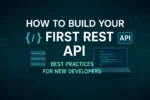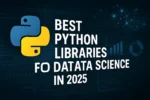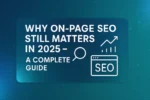What’s New for Developers in 2025: Key Trends, Tools & Technologies

The tech world never stands still — and 2025 is proving to be a pivotal year for developers. From groundbreaking tools powered by artificial intelligence to fresh frameworks and evolving languages, there’s a lot happening that every developer should keep an eye on.
If you’re wondering what’s new for developers in 2025, this article breaks it all down — in a way that’s insightful, human-written, and tailored to help you stay ahead of the curve.
1.AI-Powered Development Is Becoming the Norm
One of the most exciting developments this year is the mainstream adoption of AI coding assistants. Tools like GitHub Copilot, ChatGPT Code Interpreter, and newer entrants like Tabnine 2.0 have evolved to:
Generate more context-aware code
Provide inline documentation
Help developers debug in real-time
Auto-generate test cases
Why it matters: These tools are transforming productivity and lowering the barrier for entry into software development.
Pro Tip: While AI can write code, human developers still bring the creativity, problem-solving, and architectural decisions needed for complex projects.
2.Web Development Gets a Performance Upgrade
Frameworks are evolving rapidly in 2025 to meet user demands for faster, more lightweight experiences.
Trending in Web Dev:
Astro 4.0: Now supports hybrid SSR/SSG rendering by default
React 19: Improved server components and caching features
Next.js 15: Smarter routing and full support for React Server Components
HTMX: Continued rise in popularity for minimal-JavaScript interactivity
Why it matters: The line between server-side and client-side rendering is getting blurrier — giving devs more flexibility and better performance by default.
3.Languages to Watch in 2025
Programming languages are evolving too. While JavaScript, Python, and Java still dominate, 2025 is seeing growing interest in:
Rust: Now widely used in production, especially in systems and embedded dev
Zig: Gaining traction as a low-level alternative to C/C++
Bun: JavaScript runtime that’s faster than Node.js
Python 3.13: Introduces better concurrency support and performance gains
Fun fact: Rust is now being taught in over 200 universities as a first-choice systems language.
4.Cloud-Native Tools & DevOps Are Smarter
As cloud infrastructure gets more complex, developers are relying more on intelligent DevOps tools that automate provisioning, deployment, and monitoring.
Key updates in 2025:
Pulumi AI: Write infrastructure-as-code using natural language
Kubernetes 1.32: Easier configuration and autoscaling out of the box
Serverless 3.0: Full event orchestration with simplified debugging tools
GitHub Actions v3: Enhanced CI/CD automation with tighter integrations
5.Edge Computing & Distributed Apps Go Mainstream
In 2025, edge-first architecture is gaining momentum — especially for apps that demand low latency and real-time responsiveness.
Popular platforms:
Cloudflare Workers
Vercel Edge Middleware
Netlify Edge Functions
Why it matters: Developers are now building apps that run closer to the user, reducing load times and enabling new experiences like localized AI inference.
6.Security by Default
With growing cyber threats, 2025 brings a shift toward secure-by-design development.
Tools helping developers stay secure:
Snyk AI Advisor for dependency management
OWASP AI Top 10 added to industry standards
Built-in supply chain scanning in modern IDEs like JetBrains and VS Code
TL;DR: You don’t have to be a security expert — but your tools now help you write safer code from day one.
Final Thoughts: The Developer Role Is Evolving
The role of a developer in 2025 is more dynamic than ever. It’s not just about writing code — it’s about integrating tools, automating workflows, ensuring performance, and thinking like a product owner.
Whether you’re just getting started or have been coding for decades, staying informed about the latest trends and tools will help you build better, faster, and smarter.






